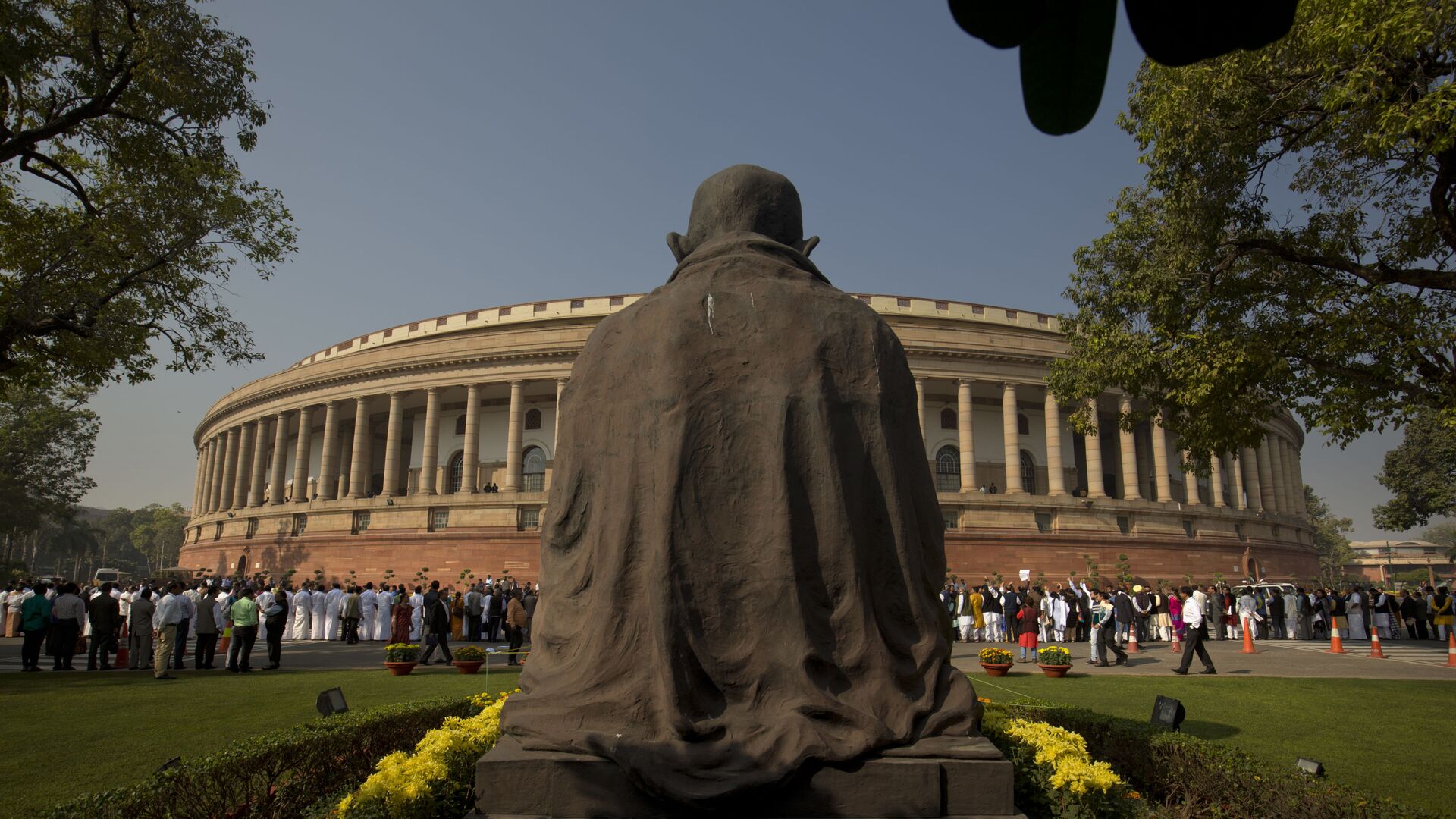https://sputnikglobe.com/20211220/india-moves-to-link-biometric-programme-with-electoral-rolls-amid-surveillance-concerns-1091668909.html
India Moves to Link Biometric Programme With Electoral Rolls Amid Surveillance Concerns
India Moves to Link Biometric Programme With Electoral Rolls Amid Surveillance Concerns
Sputnik International
On Monday, the lower house of the Indian Parliament passed a bill to link electoral roll data with the biometric system Aadhar amid massive protests and boycotts by the opposition.
2021-12-20T13:38+0000
2021-12-20T13:38+0000
2022-07-19T10:41+0000
nepal
bangladesh
muslims
narendra modi
indian national congress
privacy
biometric identification
rohingya
https://cdn1.img.sputnikglobe.com/img/07e4/09/0e/1080449992_0:0:3336:1878_1920x0_80_0_0_be5caa32653b3e2ccb89a4751104c4ce.jpg
On Monday, the lower house of the Indian Parliament passed a bill to link electoral roll data with the biometric system Aadhar amid massive protests and boycotts by the opposition.Law Minister Kiren Rijiju, who put forth the bill in the lower house, said the law would remove bogus voter cards and make the electoral process more credible.Called the Election Laws (Amendment) Bill, 2021, it allows electoral registration officers to seek Aadhaar for people who want to register as voters "for the purpose of establishing their identity".The bill passed even as parliamentarians from Congress, Trinamool Congress, and others parties stood in the Well of the House, shouting slogans against the government.Nishikant Dube, an MP from the governing BJP, said this law will end the politics that patronise specific religions even if these people are from neighbouring countries."Bangladeshis, Nepalis, and other foreigners will not be able to vote anymore", Dube said while accusing opposition members of supporting illegal residents to obtain votes during elections.Asaduddin Owaisi, a four-time MP and the president of the All India Majlis-e-Ittehadul Muslimeen, said the legislation will take away the autonomy of the Election Commission.Rejecting the allegations, Rijiju said various proposals, which are part of the bill, have already been suggested and recommended by parliamentary committees.In terms of privacy concerns, the minister said that the law is valid even if tested against the parameters fixed by the nation's highest court, which upheld the right to privacy as being a fundamental right. In a 2017 ruling, the Supreme Court laid down a triple test that needed to be satisfied for judging the permissible limits for invasion of privacy to validate every piece of legislation. These three points are permissible law, legitimate state interests, and test of proportionality.
nepal
bangladesh
Sputnik International
feedback@sputniknews.com
+74956456601
MIA „Rosiya Segodnya“
2021
Rishikesh Kumar
https://cdn1.img.sputnikglobe.com/img/07e4/08/04/1080055820_0:0:388:389_100x100_80_0_0_40018ee210946d65d49ffba4f4c008e1.jpg
Rishikesh Kumar
https://cdn1.img.sputnikglobe.com/img/07e4/08/04/1080055820_0:0:388:389_100x100_80_0_0_40018ee210946d65d49ffba4f4c008e1.jpg
News
en_EN
Sputnik International
feedback@sputniknews.com
+74956456601
MIA „Rosiya Segodnya“
Sputnik International
feedback@sputniknews.com
+74956456601
MIA „Rosiya Segodnya“
Rishikesh Kumar
https://cdn1.img.sputnikglobe.com/img/07e4/08/04/1080055820_0:0:388:389_100x100_80_0_0_40018ee210946d65d49ffba4f4c008e1.jpg
india, indian parliament, law minister kiren rijiju, india moves to link biometric programme with electoral rolls amid surveillance concerns, aadhar
india, indian parliament, law minister kiren rijiju, india moves to link biometric programme with electoral rolls amid surveillance concerns, aadhar
India Moves to Link Biometric Programme With Electoral Rolls Amid Surveillance Concerns
13:38 GMT 20.12.2021 (Updated: 10:41 GMT 19.07.2022) India has mandated Aadhar, a Hindi word meaning "foundation", for the entire population to make it challenging to forge identification and reduce leakages in government welfare programmes. However, critics allege that the government is linking this biometric ID with other programmes to keep tabs on the general public.
On Monday, the lower house of the Indian Parliament passed a bill to link electoral roll data with the biometric system Aadhar amid massive protests and boycotts by the opposition.
Law Minister Kiren Rijiju, who put forth the bill in the lower house, said the law would remove bogus voter cards and make the electoral process more credible.
Called the Election Laws (Amendment) Bill, 2021, it allows electoral registration officers to seek Aadhaar for people who want to register as voters "for the purpose of establishing their identity".
The bill passed even as parliamentarians from Congress, Trinamool Congress, and others parties stood in the Well of the House, shouting slogans against the government.
Nishikant Dube, an MP from the governing BJP, said this law will end the politics that patronise specific religions even if
these people are from neighbouring countries.
"Bangladeshis, Nepalis, and other foreigners will not be able to vote anymore", Dube said while accusing opposition members of supporting illegal residents to obtain votes during elections.
Asaduddin Owaisi, a four-time MP and the president of the All India Majlis-e-Ittehadul Muslimeen, said the legislation will take away the autonomy of the Election Commission.
"Subjecting voter enrolling to Aadhar violates the sanctity of the constitutional process... It will end up violating the principle of secret ballot and fundamental rights of privacy", Owaisi said.
Rejecting the allegations, Rijiju said various proposals, which are part of the bill, have already been suggested and recommended by parliamentary committees.
In terms of privacy concerns, the minister said that the law is valid even if tested against the parameters fixed by the nation's highest court, which upheld the right to privacy as being a fundamental right.
In a 2017 ruling, the Supreme Court laid down a triple test that needed to be satisfied for judging the permissible limits for invasion of privacy to validate every piece of legislation. These three points are permissible law, legitimate state interests, and test of proportionality.




